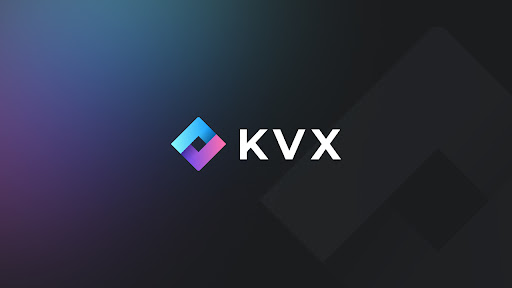The Cayman Islands is widely recognized as the premier jurisdiction for hedge fund formation, attracting thousands of fund managers worldwide. Its popularity stems from a robust legal framework, tax neutrality, experienced service providers, and a business-friendly regulatory regime. Whether launching a flagship hedge fund, a feeder fund for offshore investors, or a master-feeder structure, the Cayman Islands provides unmatched flexibility and global investor confidence.
This article outlines the key steps, structures, and regulatory considerations for setting up and operating a Cayman hedge fund, specifically tailored for international fund managers.
1. Why Choose the Cayman Islands?
• Tax Neutrality — No corporate income, capital gains, or withholding taxes.
• Legal Certainty — Based on English common law with a modern legislative framework.
• Speed and Simplicity — Funds can be launched quickly with streamlined approval processes.
• Global Acceptance — Recognized by institutional investors, family offices, and wealth managers.
• Professional Ecosystem — World-class administrators, auditors, directors, and legal advisors.
2. Common Legal Structures for Cayman Hedge Fund
The choice of structure depends on investor profile, strategy, and distribution goals. The three main legal entities used are:
A. Exempted Company
• Most common hedge fund vehicle.
• Can issue voting and non-voting shares.
• Suitable for standalone funds or as part of a master-feeder structure.
• Requires at least one shareholder and one director (no local residency required).
B. Segregated Portfolio Company (SPC)
• Allows for the creation of legally distinct portfolios under a single legal entity.
• Useful for multi-strategy funds, fund platforms, or managers seeking operational efficiency across sub-funds.
• Each portfolio’s assets and liabilities are ring-fenced.
C. Limited Partnership
• Commonly used as a master fund in master-feeder structures.
• Flexible, tax-transparent entity with general and limited partners.
• Appeals to U.S. taxable investors familiar with partnership structures.
3. Types of Cayman Hedge Funds
Under the Cayman Islands Mutual Funds Act, hedge funds are generally categorized as mutual funds and are subject to regulatory oversight by the Cayman Islands Monetary Authority (CIMA).
A. Registered Mutual Fund
• Open-ended fund offering equity interests redeemable at the option of investors.
• Must have:
• Minimum initial investment of US$100,000 (or be listed on a recognized exchange),
• An approved Cayman Islands auditor and administrator,
• A local registered office,
• Annual registration with CIMA.
B. Administered Mutual Fund
• A fund administered by a Cayman-based licensed mutual fund administrator.
• Suitable when the fund does not meet the US$100,000 threshold.
C. Licensed Mutual Fund
• Requires a license directly from CIMA.
• Typically for retail-oriented or lower investment threshold funds.
4. The Setup Process
Setting up a Cayman hedge fund typically involves the following steps:
Step 1: Define Structure and Service Providers
• Choose fund structure (standalone, master-feeder, SPC).
• Engage an advisor, fund administrator, auditor, investment manager, compliance and independent directors.
• Appoint a local registered office (e.g., Bell Rock Group).
Step 2: Draft and Finalize Documentation
• Fund offering memorandum (PPM).
• Memorandum and Articles of Association (or LP agreement).
• Subscription agreement and investor forms.
• Investment management agreement.
• Service provider contracts.
Step 3: Incorporation and Regulatory Registration
• Incorporate the fund entity with the Cayman Registrar of Companies.
• Register with CIMA under the Mutual Funds Act.
• Appoint AML officers in accordance with Cayman AML regulations.
Step 4: Bank Account and Operational Setup
• Open fund bank and brokerage accounts.
• Integrate NAV reporting, subscription/redemption workflow, and investor onboarding (KYC/AML).
• Coordinate audit and compliance timeline.
5. Ongoing Requirements
Cayman hedge funds are subject to ongoing regulatory and operational obligations, including:
A. Annual Audit
• Must appoint a CIMA-approved auditor (usually a Cayman-based affiliate of a global firm).
• Audited financial statements must be submitted to CIMA within six months of year-end.
B. Regulatory Filings
• Annual return to CIMA via the Funds Annual Return (FAR) form.
• Economic Substance Notification (for certain entities).
• AML officer updates and AML/CFT risk assessments.
C. FATCA & CRS Compliance
• Registration and reporting under U.S. FATCA and OECD Common Reporting Standard (CRS).
• Appoint a Principal Point of Contact (PPOC) and Authorizing Person (AP) on the DITC portal.
D. Corporate Governance
• Appointment of independent directors is strongly recommended.
• Regular board meetings and review of fund operations in line with the Statement of Guidance on Corporate Governance.
E. Compliance Reviews by Appointed Compliance Officers
Why Set Up a Hedge Fund with CV5 Capital?
CV5 Capital offers a seamless, institutional-grade platform designed specifically for fund managers entering the hedge fund or digital asset space. Here’s why CV5 is the partner of choice:
Turnkey Infrastructure — Legal structuring, fund administration, custody, banking, compliance, operational support, audit, banking — all integrated into one launch-ready platform.
Cayman Expertise — Full support for Cayman fund formation, with access to experienced legal, governance, and AML professionals.
Speed to Market — Accelerate your fund launch with pre-vetted service providers and streamlined onboarding. 3-week launch.
Blockchain-Native Capability — Designed to support tokenized assets, on-chain strategies, staking, and DeFi yield products.
Institutional-Grade Oversight — Robust governance, risk management, and independent oversight built in from day one.
Scalability — Easily expand to multi-strategy funds, SPVs, or global feeder structures as your AUM grows.
Investment Management Entity Formation/Registration — to receive management and performance fees. Completes the fund structure.
CV5 Capital empowers fund managers to confidently launch and scale hedge funds and digital asset strategies with a compliant, future-ready foundation.





